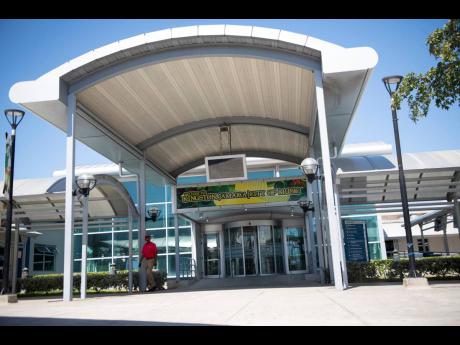The worst is yet to come, warns World Bank economist - Countries urged to keep borders closed but continue international trade
A World Bank executive has suggested that countries should keep borders closed to passenger traffic for a while longer while ensuring international trade continues to prevent a collapse of the global economy amid the coronavirus pandemic.
In a virtual press conference with journalists from Jamaica, St Vincent and the Grenadines, Barbados and Trinidad and Tobago on Monday, the World Bank’s chief economist for Latin American and the Caribbean, Martin Rama, explored the pros and cons of closing national borders.
“It is very important to distinguish between what you do at the borders with people and what you do with goods and services. It is very clear that for some time, the crossing of borders by people will be constrained. Until we have easy testing mechanism, until we reach that point, it is likely that for people crossing borders, it will be more difficult,” said Rama.
“However, it will be very important to keep the borders open to trade. We need supply chains for food to keep working, we need exports and logistics to keep working. Same thing with finance. There are countries that offer financial services and we are at a time when we are seeing capital outflows that are bigger than what we saw during the [2008] global financial crisis,” he said. “Maintaining the mobility of capital, maintaining trusted mechanisms – payments and exchange – will be extremely important.”
Rama went on to explain that the World Bank and other multilaterals view this as an international agenda complementary to the domestic agenda that will be very important to helping the Latin American and Caribbean region bounce back from the global crisis.
He told the Caribbean journalists that as the fallout from the pandemic mounts and the multiplier effects begin to manifest themselves, the region will need to brace for more economic hardships, as the worst is yet to come.
“If one thinks a few months down the road and one thinks about countries that have limited means, how will they be used? We don’t have the European Central Bank or Federal Reserve behind us … . Firms will be unable to pay their bills and will start laying off workers,” he said.
The World Bank posits that governments may need to support financial sector institutions and key sources of employment.
Facing challenges
“We need to help people face these enormous challenges and make sure that financial markets and employers can weather the storm,” said Humberto López, World Bank acting vice-president for the Latin America and the Caribbean region. “That means limiting the damage and laying the groundwork for recovery as fast as possible.”
Gross domestic product (GDP) in Latin America and the Caribbean (excluding Venezuela) is expected to be -4.6 per cent in 2020, according to a report released by the World Bank on Sunday, with a return to growth of 2.6 per cent expected for 2021.
Many countries in in the region are confronting the crisis with a constrained fiscal space. Higher levels of informality make it difficult to reach out to all households and protect all sources of employment. Many households live from hand to mouth and do not have the resources to cope with the lockdowns and quarantines needed to contain the spread of the pandemic. Many also depend on collapsing remittances. To help the vulnerable face this economic challenge, existing social protection and social assistance programmes should be rapidly scaled up and their coverage extended, the World Bank recommends.
At the same time, governments will have to take on the burden of much of the losses. Socialising the losses may require taking ownership stakes in financial sector institutions and strategic employers through recapitalisation. This support will be key to preserving jobs and allowing for a recovery.
However, these processes need to be transparent and strong arrangements need to be put in place to manage the newly acquired assets, building on the best examples of sovereign wealth funds and asset management companies.

